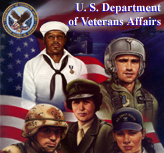|
412 Russell Senate Bldg.Washington D.C. 20510 Democratic StaffPhone Number:(202) 224-9126 825A Hart Senate Bldg.Washington D.C. 20510 Republican StaffPhone Number:(202) 224-2074 |


Daniel Kahikina Akaka, U.S. Senator from Hawaii, is the Chairman of the Senate Committee on Veterans' Affairs. Akaka has served on the Committee since he entered the Senate in 1990, and continues to work to ensure that veterans receive the care and benefits they have earned through their service.
Like many of his generation, Akaka's youth was interrupted by World War II. Akaka saw the war begin on the morning of December 7, 1941, when he witnessed the bombing of Pearl Harbor from the roof of his high school dormitory. Then seventeen, the future senator watched as the invading fighter planes flew over his head, one of which dropped an anti-aircraft shell that exploded near his dorm. Later that day, Akaka was activated along with his high school classmates at the Kamehameha School for Boys (a military school at the time). While he would continue to spend his days as a student, at night he would trade his books for a rifle, and patrol for paratroopers in the hills behind his school's campus.
After graduating high school, Akaka served in the U.S. Army Corps of Engineers, first as a civilian, then as an enlisted soldier. Initially stationed at Hawaii's Schofield Barracks, he soon departed Hawaii for the South Pacific by way of a troopship that zigzagged across the Pacific Ocean to evade enemy submarines. Akaka's engineer unit moved from Hawaii to Eniwetok, Guam, Tinian and Saipan. Saipan was the wartime base for the B-29 Superfortress bombers that raided Japan. The most famous of the B-29 bombers, the Enola Gay, delivered the atomic bomb upon Hiroshima City on August 6, 1945.
Akaka returned from war to attend college on the G.I. Bill, and made a career in the public education system as a teacher and school administrator before being elected to the U.S. House in 1976. In 1990, he was appointed to the U.S. Senate where he would to replace his friend and fellow World War II veteran, the late Senator Spark Matsunaga. Akaka also inherited Matsunaga's seat on the Veterans' Affairs Committee, where he continues to work collaboratively with his colleagues, Veteran Service Organizations, veterans and their families, to improve veterans' care and benefits through oversight and legislation.
As Chairman, Akaka has focused on improving the level of cooperation and collaboration between the Departments of Defense and Veterans Affairs, to improve the transition from military service to veteran status. He continues to advocate for improved health care, fair compensation and benefits, and increased funding of veterans' programs. These efforts include legislation to improve mental heath care for veterans with post traumatic stress disorder and other "invisible wounds," as well as treatment for traumatic brain injury, which is sometimes referred to as the signature wound of the current conflicts.
To see recent news from the Committee, click here.
For Senator Akaka's homepage, click here
|
|
|
|
||



